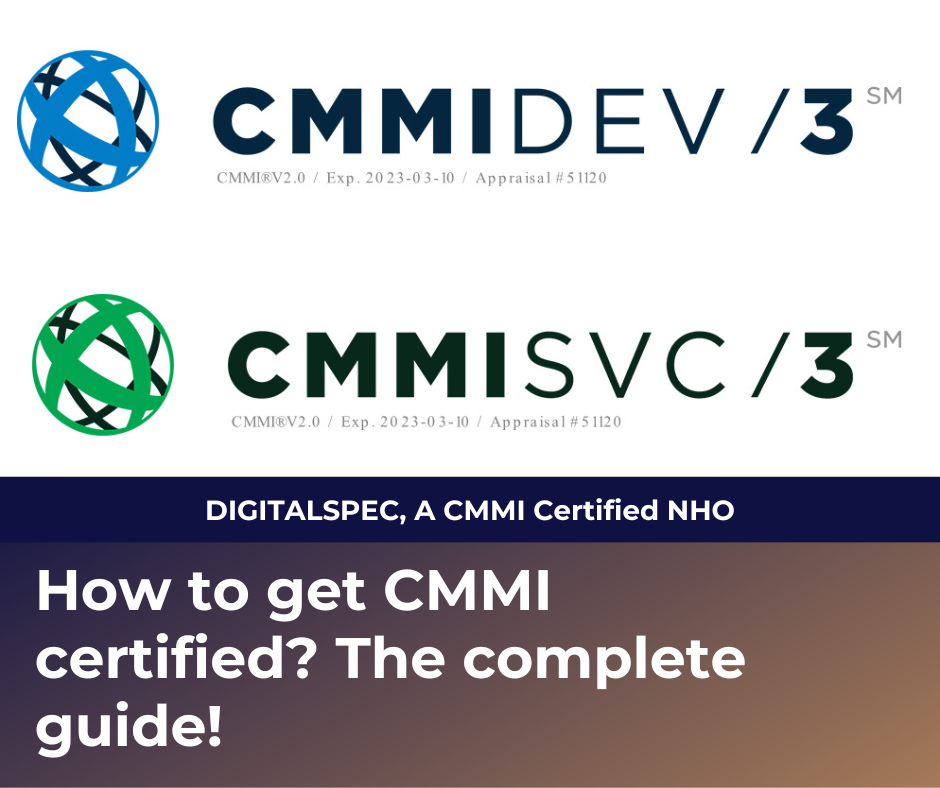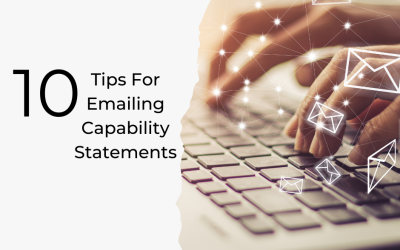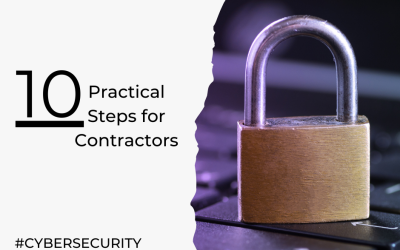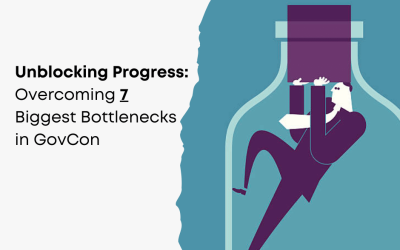You may have heard of CMMI certifications and wondered what they mean for you as a government contractor. To this end, CMMI stands for Capability Maturity Model Integration, and it is a process improvement approach that can be used by organizations to improve their performance. CMMI certification is granted by the Software Engineering Institute (SEI) and is recognized internationally.
Moreover, it is especially popular among government contractors, as it is seen as a hallmark of excellence and quality assurance by the US agencies, such as the DoD. Some agencies and/or contracts even require vendors to be CMMI certified, sometimes in conjunction with other certifications, such as ISO certifications and Six Sigma certifications.
The two types of CMMI certifications
1. CMMI Development (CMMI-DEV) covers all aspects of software development and management.
2. CMMI Services (CMMI-SVC) focuses on service-related processes such as service delivery, support, and training.
The Five Maturity Levels of CMMI
The model describes five maturity levels, which are summarized below. The higher up you go, the more credibility you have…
1. Initial (Level 1)
The initial level is characterized by ad hoc processes, little formalization, and low process capability. At this level, processes are typically immature and unproven. There is little process discipline, and processes are usually carried out on an individual basis with little documentation.
2. Repeatable (Level 2)
The repeatable level is characterized by basic management processes being established to track cost, schedule, and functionality. Although the processes at this level are still performed on an individual basis, they are beginning to be documented and standardized.
3. Defined (Level 3)
At the defined level, all major processes of the organization are documented, standardized, and integrated into a coherent set of procedures that comprise the organization’s process baseline. The organization’s set of standard processes meets all the specified requirements for the application area and covers the entire life cycle from initiation through delivery and maintenance.
4. Managed (Level 4)
The managed level focuses on quantitative process management. In addition to meeting all the requirements of the defined level, organizations at this level continuously monitor and control their processes using statistical and other quantitative techniques. They use these techniques to determine whether their processes are performing as expected and achieving desired results. Additionally, they use process performance data to identify trends and manage changes to their process baselines.
5. Optimizing (Level 5)
Organizations at the optimizing level continually improve their processes in response to changing business objectives and environmental conditions. They use both quantitative and qualitative methods to understand where their process capabilities need improvement and how those improvements can best be achieved. Processes at this level are also proactive; that is, they anticipate problems and take steps to prevent them from occurring in the first place.
What are the benefits of a CMMI certification?
Although it is not required by law, many organizations choose to pursue CMMI certification as a way to demonstrate their commitment to quality and continuous improvement. Once an organization is certified, it can use the CMMI logo to show that it meets the highest standards for quality and continuous improvement. It also offers a number of resources, including training and support, that can help organizations to implement CMMI practices and procedures.
And at the end of the day, CMMI certification can help you win government contracts since many government agencies require their contractors to be certified at a certain level.
How to get CMMI certified?
If you’re thinking about pursuing CMMI certification for your organization, the first step is to contact an SEI-authorized lead appraiser who can assess your readiness for certification and help you get started on the path to success. Now, there are several organizations that offer CMMI certification, so it is important to do your research and choose one that is reputable and has a good track record.
Once you have chosen a certification body, you will need to register for an assessment, which can take several months so it is important to start early. When the assessment begins, a team of evaluators will review your organization’s processes and procedures to see if they meet the CMMI requirements.
Once the assessment is complete, you will be given a report that details the findings of the evaluators. If your organization meets the requirements, you will be awarded the CMMI certificate. However, this is not the end: You will need to make sure you recertify yourself after the designated period, which usually lasts 3 years.
ISO certifications vs. CMMI certification
ISO certifications are primarily focused on quality management, while CMMI certification covers a wider range of areas such as process improvement, risk management, and workforce development. While both options can be beneficial, the right choice for your organization will depend on your specific needs and goals. If you are primarily concerned with quality control, then an ISO certification may be the right choice. However, if you are looking for a more comprehensive approach to improvement, then a CMMI certification may be a better fit. Ultimately, the decision comes down to what is best for your organization. Whichever option you choose, you can be confident that you are making a valuable investment in your business.
Conclusion:
At the end of the day, organizations that pursue CMMI certification can reap many benefits, including improved quality, efficiency, and odds of winning a contract.
Are you new here to our blog? Over at DIGITALSPEC, we are a CMMI level 3 certified organization with over 15+ years of experience in providing IT and business consulting services to businesses and government agencies of all sizes. So if you have any questions about business, technology, or all things GovCon, please feel free to reach out to us at digitalspec.net/contact.



